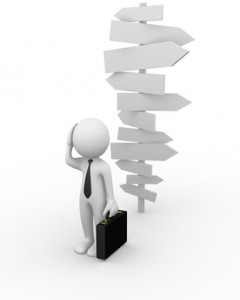Lacking Talent?
“The more I practice, the luckier I get.” Golfer Gary Player
 If you think about it, the first four sources of writer’s block in this series are somewhat intangible.
If you think about it, the first four sources of writer’s block in this series are somewhat intangible.
The fears of ridicule, failure, the unknown and success don’t really exist apart from in the so-afflicted writer’s head – and, more specifically, their heart and gut minds. They become ’real’ enough however when they block a writer’s creative flow.
On first sight, the next common cause of writer’s block, namely lack of talent, could be thought of as being more tangible. If you are no good at writing, people won’t read what you write, so there’s no point writing, right?
Well wrong! Any lack of talent is mainly, and firstly, a perception again in the mind of the writer. Like all perceptions, it is both relative and as imaginary as any fear. Also like many fears, this perception can be seeded by an unfavourably marked essay at school or, god forbid, a three star review (or less) on Amazon.
Nowadays too any perceived lack of talent runs deeper than our ability to write. Whether we publish through the traditional or indie route, we have to be talented at marketing too and with the way we utilise social media.
Modern day successful writers have a talent for self-promotion through blogging, podcasts, YouTube and the likes of Twitter and Pinterest. So the demands on such a ’wired-writer’ increase which may erect an insurmountable barrier to a budding author.
So how do we go about getting more talented? The answer is simple. Like any activity such as a sport, or playing a musical instrument, practice and immersion are the keys. In this way, we build unconscious competence in our art.
So my five top tips for becoming a more talented writer are:
1. Write at least 500 words a day (or two sides of paper) – see Julia Cameron’s ’Morning Pages’ for some more on this
2. Blog at least once a week
3. Tweet three times a day, but with care and craft at how you optimise the linguistic use of those 140 characters (ideally only use 100 so you can be re-tweeted!)
4. Make a point of thanking people who leave reviews – even not so good ones (there are ways if you don’t know them)
5. Take at least 5 minutes of ’me time’ out each day to be thankful for all the skills and gifts you do possess – and at least once a day make sure you use at least one of them – and use it wisely
Useful links
Series index
Julia Cameron’s Morning Pages
140 Characters: a style guide for the short form by Dom Sagolla
















 One of the major blocks to our creativity is the avoidance of failure. If you don’t actually do anything then you can’t possibly fail.
One of the major blocks to our creativity is the avoidance of failure. If you don’t actually do anything then you can’t possibly fail.